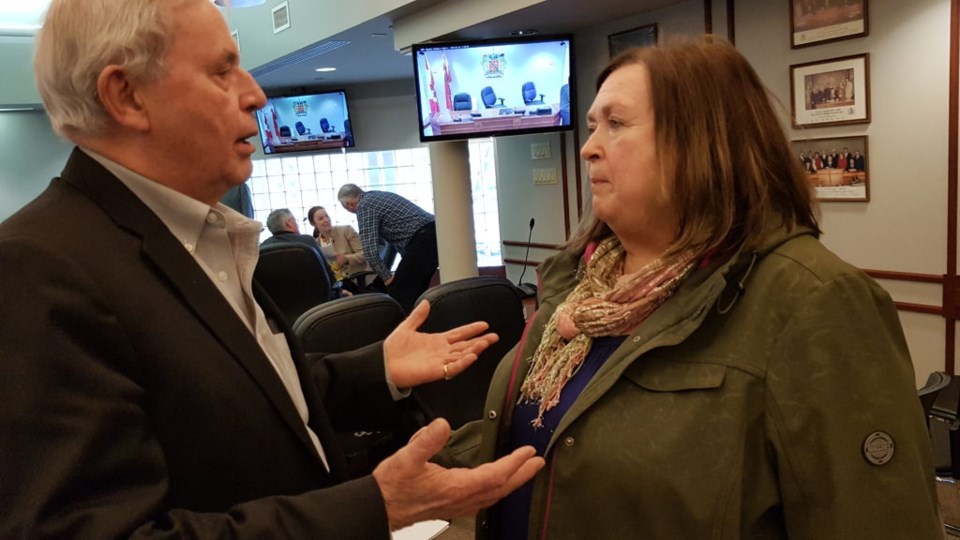
Although there are other options for replacing the vacant seat left by the resignation of Stuart McCormack, if councillors follow tradition, they may consider appointing Sandra O’Connor, the ninth-place candidate in the 2018 election.
She has continued to stay active as a volunteer, and ran in the recent federal election representing the Green Party.
She was surprised when friends began calling her on Canada Day to tell her about the resignation of McCormack.
The news brought about “a time of reflection” for her, she says, as she waits to hear council’s decision.
“If called to serve the community, I’d step in. But there are other options for council to consider.”
She says she hopes council makes a decision sooner rather than later, “doing whatever they want to do quickly, so they can carry on doing what is best for the town.”
The municipal act, revised in 2018, says when a seat becomes vacant, council must declare the seat vacant at its next meeting, unless it’s due to the death of a councillor, in which case it can be made at the next two meetings. Within 60 days of declaring the seat vacant, council must decide whether to fill it through a by-election or by appointment for the remainder of the council term.
If a seat becomes vacant after March 31 in a regular election year, the seat may only be filled by appointment, unless it occurs within 90 days of the election, in which case it can remain vacant.
Town clerk Peter Todd has been working on a report to present to council on the options and past history of replacing councillors in NOTL. He says while there are timelines written into the municipal act, during a state of emergency, council is not required to abide by them, and could choose to defer a decision.
If council chooses a by-election, it will have to decide how it is to be handled, possibly deferring it until it would be considered safe.
Council could also choose to allow online voting, says Todd.
In a town without a ward system, the by-election process to fill one position could be almost as costly as an election to fill an entire slate of council, he says.
“It would work the same as a normal election.”
Todd says the report may be presented to councillors at the committee-of-the-whole meeting July 13, with a council decision about how they choose to proceed possible by July 20.